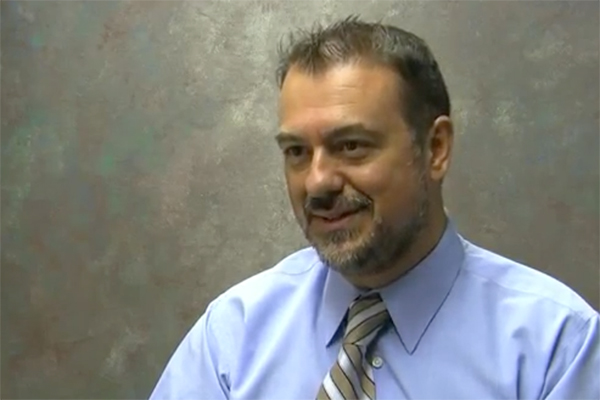

Farm fresh fuels?
UD joins team working to turn farm refuse into useful biofuels, chemicals
12:50 p.m., Feb. 1, 2013--The U.S. Department of Agriculture (USDA) recently announced $25 million in funding to four programs engaged in biomass biofuel, and farm-based technology research.
Researchers from the University of Delaware are teaming up with the USDA’s Agricultural Research Service (ARS) program at the Eastern Regional Research Center in Wyndmoor, Pa., which received a $6.87 million grant to develop farm-central biofuel technologies.
Research Stories
Chronic wounds
Prof. Heck's legacy
Dion Vlachos, director of the Catalysis Center for Energy Innovation (CCEI) and Elizabeth Inez Kelley Professor at UD, will lead modeling studies focused on making fuels from bio-oil as a member of the ARS team.
Bio-oil is a viscous fluid produced when trees, grass, horse manure and other farm waste is rapidly heated using a process known as pyrolysis. Bio-oil, however, is a poor quality fuel that is not fit for use in automobiles and other equipment/applications. In order to be useful, the oil must be converted to a bio-fuel through a chemical reaction known as catalytic conversion.
“This is a hard problem because the bio-oil contains more than 100 compounds, and the ideal catalyst may be different for each compound,” Vlachos explained.
The UD team will use computations to guide the selection of catalysts from a large library of materials for such complex systems. The computational work will guide experimental efforts aimed at discovering which catalysts work best to improve select components of the bio-oil. Other local partners involved in the project include researchers from Drexel University, the University of the Sciences and Villanova University.
The work is another step in CCEI’s efforts to create breakthrough technologies for the production of biofuels and chemicals from plant biomass that can be used in industries across the board, including the automotive industry.
CCEI is funded by the U.S. Department of Energy as part of the Energy Frontier Research Center program, which combines more than 20 faculty with complimentary research skills to collaborate on solving the world’s most pressing energy challenges.
Recent CCEI projects include efforts to develop a non-petroleum based method for making plastics from biomass.
The 2008 Farm Bill established this USDA funding, which is made possible through investments by the National Institute of Food and Agriculture (NIFA) and its Biomass Research and Development Initiative.
Article by Sarah Meadows and Karen Roberts









